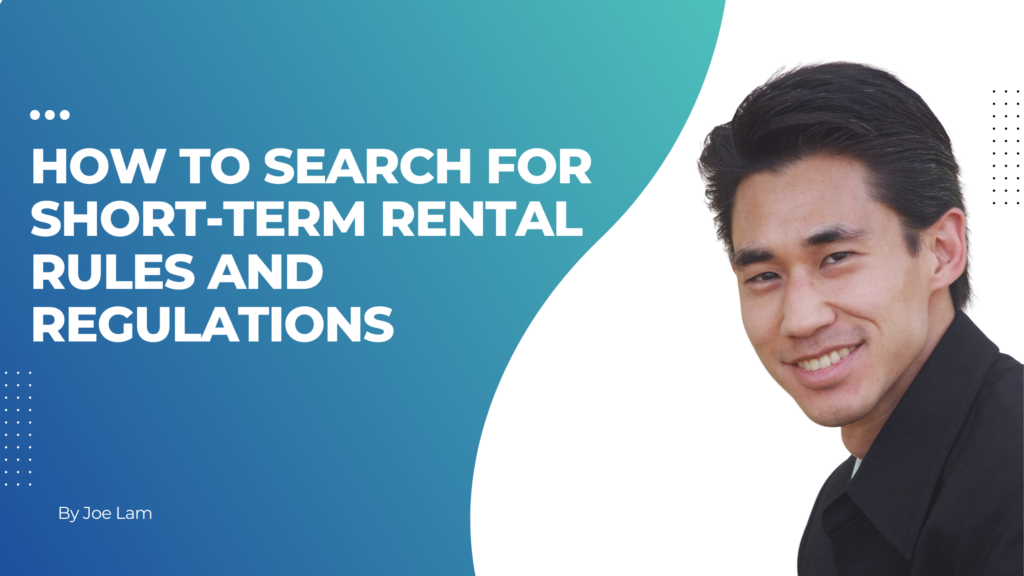The sharing economy has transformed the way people travel and short-term rentals have become an integral part of the modern travel experience. Websites like Airbnb, Vrbo, and Booking.com have empowered homeowners to turn their properties into temporary accommodations for travelers, offering an alternative to traditional hotels and motels. However, the surge in the popularity of short-term rentals has led to a myriad of rules and regulations that can vary widely from one jurisdiction to another. For property owners considering entering this market, and for travelers looking to avoid legal snafus, understanding these rules is crucial. This article aims to guide you through the labyrinth of researching short-term rental regulations, so you can make informed decisions.
Start with Local Government Websites
The most authoritative sources for short-term rental laws are local government websites. Cities and counties often have dedicated pages or sections where you can find information on zoning laws, permits, and taxes related to short-term rentals.
Action Steps:
1. Identify the Specific Jurisdiction: Knowing whether your property falls within city limits or county lines is essential.
2. Search for Key Terms: Use keywords like “short-term rentals,” “vacation rentals,” or “Airbnb” in the search bar.
3. Check Multiple Departments: Regulatory information could be found in various departments, such as Housing, Planning, or Revenue.
4. Download and Read Ordinances: Many municipalities publish PDFs of relevant legal ordinances, which provide the full legal text.
5. Speak to a Representative: Call the number on the website and speak with a government representative who works in the department to ensure the information listed is up to date.
Consult State and Federal Laws
While local regulations are the most important, understand that state and federal laws might apply to short-term rentals. States may have overarching rules about taxes, safety standards, and consumer protection. Some areas charge 3 separate short-term rental taxes for the City, County, and State.
Action Steps:
1. State Government Website: Navigate to your state’s official website and perform a similar keyword search as you did for the local government.
2. Federal Websites: For U.S. citizens, websites like IRS.gov can provide tax information relevant to short-term rentals.
Industry Websites and Blogs
Many industry-specific websites offer summaries and guides related to short-term rental regulations. While not as authoritative as government sources, they can provide a good starting point.
Examples:
1. Airbnb’s Policy Page: This is tailored to hosts and often includes summaries of local laws.
2. Local Airbnb Host Groups: Sometimes, forums and Facebook groups can provide anecdotal advice and updates on changing laws.
Real Estate Attorneys and Consultancies
Professional advice can offer a comprehensive understanding of the landscape. Lawyers specializing in real estate or short-term rentals can offer expert advice tailored to your specific situation.
Action Steps:
1. Initial Consultation: Use this to gauge whether you need ongoing legal advice.
2. Fees: Understand the fee structure, whether it’s hourly or a flat rate.
Public Libraries and Legal Resources
Public libraries often have legal databases and resources that you can use for free. They can provide you access to legal journals, case studies, and statutes.
Action Steps:
1. Library Search Engines: Use specialized search engines available at the library.
2. Librarian Assistance: Librarians can help guide you through your research.
Community Input
Local community meetings, town halls, or online forums can be rich sources of information, especially for understanding the sentiments surrounding short-term rentals in your community.
Action Steps:
1. Calendar of Events: Check your local government’s calendar for relevant meetings.
2. Participate Online: Websites like Reddit and Nextdoor sometimes have neighborhood-specific threads discussing the pros and cons of short-term rentals.
3. Join Social Media Groups: Search Facebook and join groups such as “Airbnb Hosts”, “Vacation Rental Owners, or “Short-Term Rental Property Managers”. You’ll see Hosts posting about the latest rules and regulations and how it affected their business.
Conclusion
Navigating the intricate web of short-term rental regulations may seem daunting, but being well-informed is the key to avoiding legal troubles and making the most out of your property or your travels. By utilizing a multi-pronged approach to your research—starting with local government websites, then expanding to state and federal regulations, industry resources, and professional advice—you can operate or stay in a short-term rental with confidence.
Remember, the key takeaway is to always cross-reference information from multiple sources and stay ahead of changes in the regulations.
Airbnb Mastery: 8 Steps to Launch & Grow Your Short-Term Rental Business


